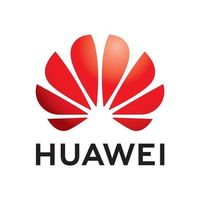China's AI Ambitions Unfazed by Chip Shortage
July 9, 2024, 3:52 am
In the midst of a global shortage of advanced AI chips, Huawei executive Zhang Ping'an stands firm in his belief that China's AI aspirations will not be hindered. Despite facing limited computing power, Zhang emphasizes the importance of innovation in addressing this challenge. While the U.S. imposes stricter restrictions on AI chip shipments to China, including a ban on sales by companies like Nvidia, Zhang remains optimistic about China's ability to lead in AI.
Huawei's own AI chip product, Ascend, has gained traction in China, although it is considered inferior in computing power compared to Nvidia's offerings. Zhang advocates for a shift towards innovative approaches that prioritize cloud solutions to compensate for the lack of advanced AI chips. By combining cloud, edge, and network technologies, Zhang believes that energy consumption can be reduced and overall efficiency improved.
Meanwhile, Microsoft has mandated a switch for its employees in China from Android to iPhone due to security concerns. With Google Play unavailable in mainland China and doubts surrounding the reliability of Huawei and Xiaomi services, Microsoft's move to iPhones with the latest iOS versions is seen as a necessary step to ensure secure communication. This decision is part of Microsoft's global initiative, Microsoft Secure Future, aimed at enhancing security measures within the company.
Employees in China will receive iPhones to facilitate their connection to corporate communication channels, with distribution points set up across the country, including in Hong Kong where Google services are accessible. While this transition impacts a few hundred employees in China, Microsoft remains committed to its business operations in the country, despite recent workforce adjustments.
In a separate move, Microsoft has also offered relocation options to employees in its cloud computing and AI divisions in China. With a focus on engineers and programmers, many of whom are Chinese citizens, the company has proposed urgent relocations to the U.S., Ireland, Australia, or New Zealand. This strategic decision reflects Microsoft's ongoing efforts to ensure the security and efficiency of its operations in the rapidly evolving tech landscape.
Overall, the developments in China's tech industry underscore the importance of innovation and adaptability in overcoming challenges such as chip shortages and security concerns. As companies like Huawei and Microsoft navigate these complexities, their strategic decisions serve as a testament to their commitment to excellence and resilience in the face of adversity.
Huawei's own AI chip product, Ascend, has gained traction in China, although it is considered inferior in computing power compared to Nvidia's offerings. Zhang advocates for a shift towards innovative approaches that prioritize cloud solutions to compensate for the lack of advanced AI chips. By combining cloud, edge, and network technologies, Zhang believes that energy consumption can be reduced and overall efficiency improved.
Meanwhile, Microsoft has mandated a switch for its employees in China from Android to iPhone due to security concerns. With Google Play unavailable in mainland China and doubts surrounding the reliability of Huawei and Xiaomi services, Microsoft's move to iPhones with the latest iOS versions is seen as a necessary step to ensure secure communication. This decision is part of Microsoft's global initiative, Microsoft Secure Future, aimed at enhancing security measures within the company.
Employees in China will receive iPhones to facilitate their connection to corporate communication channels, with distribution points set up across the country, including in Hong Kong where Google services are accessible. While this transition impacts a few hundred employees in China, Microsoft remains committed to its business operations in the country, despite recent workforce adjustments.
In a separate move, Microsoft has also offered relocation options to employees in its cloud computing and AI divisions in China. With a focus on engineers and programmers, many of whom are Chinese citizens, the company has proposed urgent relocations to the U.S., Ireland, Australia, or New Zealand. This strategic decision reflects Microsoft's ongoing efforts to ensure the security and efficiency of its operations in the rapidly evolving tech landscape.
Overall, the developments in China's tech industry underscore the importance of innovation and adaptability in overcoming challenges such as chip shortages and security concerns. As companies like Huawei and Microsoft navigate these complexities, their strategic decisions serve as a testament to their commitment to excellence and resilience in the face of adversity.
